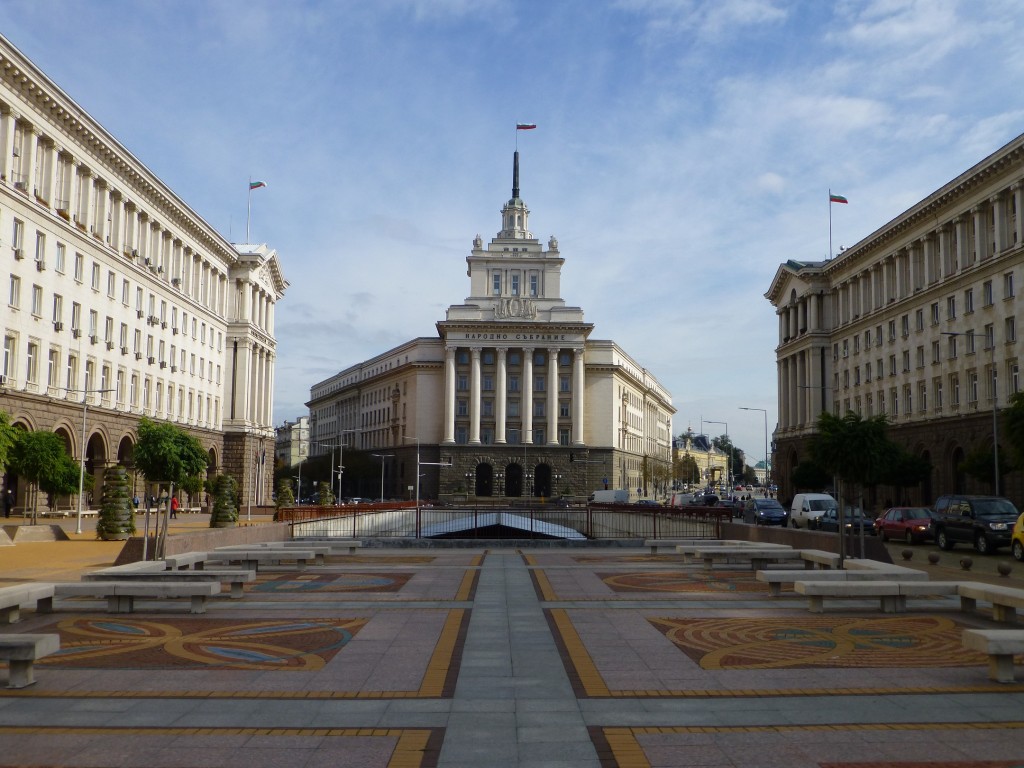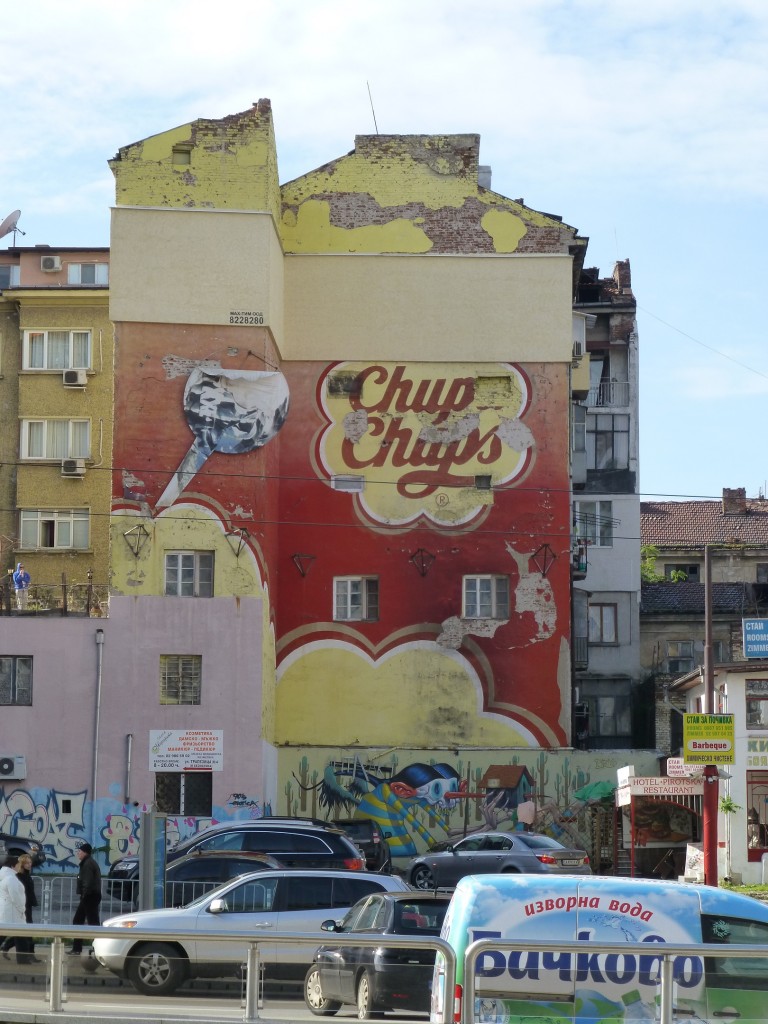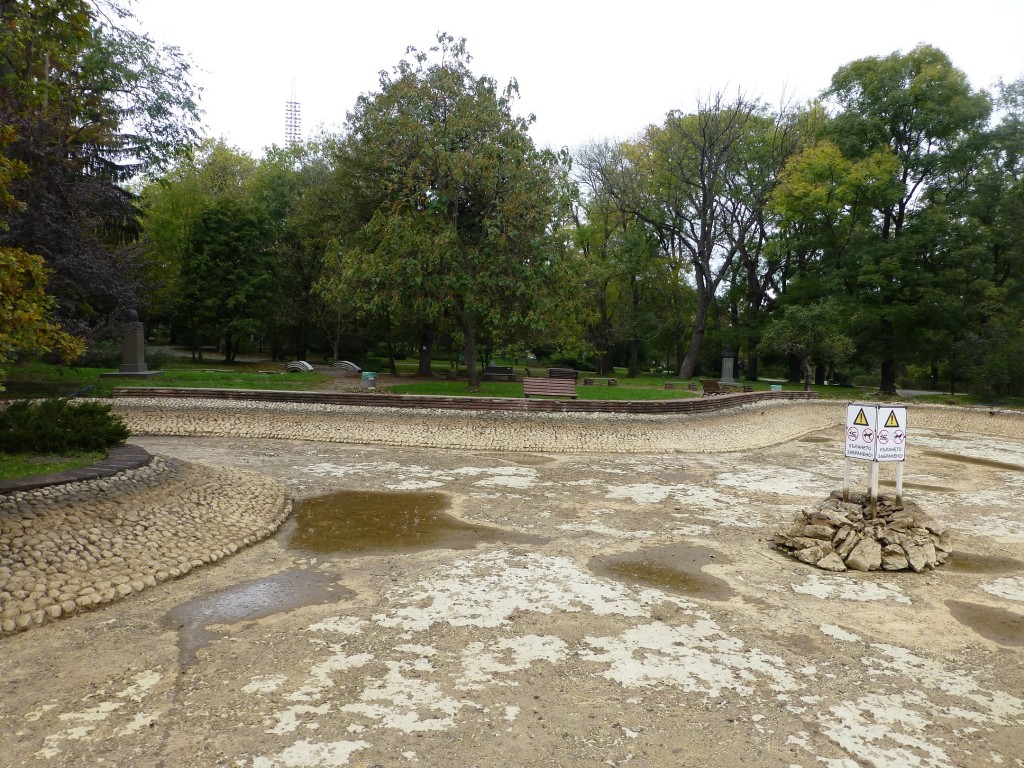I would not take my parents to Sofia. They struggle enough with D.C. or, for that matter, Columbus, Ohio. Sofia is inaccessible. Sidewalks claw at your feet with hidden angles and general malice. Cyrillic looks intimidating. The language divide demands that the day become a game of charades.
The museums aren’t intriguing. Speaking with Bulgarians and reading about the history, pre-arrival, gives more enrichment.
During a late dinner after a pleasant flight via Bulgaria Air, I waited, flushed with desire, for a pizza. An hour passed. The restaurant, despite having fewer than eight customers at that hour, forgot about my order. The wait was not without its rewards, though. A Bulgarian man sauntered over, lamenting how slow business was. No one was buying. Tourism was down. Yet he had so much to offer! Beautiful women, all of a different ethnicity. But business remained weak. Alas, as Big Daddy Kane and Ice-T explained, pimping ain’t easy.

Indecipherable signs, socialist realism blotting the architecture, and Viennese blocks in disrepair abound in Sofia. The Orthodox churches are grand and elegant. Roman churches exist, somehow. The Jewish Synagogue is moving, a two-minute walk from the mosque. Rome, Istanbul, Vienna, and Moscow shaped the city, as well as two distinct periods of a Bulgarian empire.
To enjoy Sofia, wandering the streets with a guidebook doesn’t work. It helps, but what makes the city interesting is its people. One must find an in. Those living in a post-communist country have a reputation for rudeness or a lack of warmth. They might be brusque to a stranger or look angry. Two explanations: Americans show much more friendliness than Europeans, which is also a more shallow friendliness. So when an American doesn’t get a smile or an enthusiastic response, she’s offended. Also, the reputation isn’t warranted. Part of it is a communist holdover: people showed public faces that hid emotion and thought. Letting people into a personal world, one that didn’t express complete satisfaction with the Party, was dangerous. Trust couldn’t be taken for granted. Americans don’t understand the context. Openness isn’t the default; it’s earned.

Bulgarians hold your stare. They apologize for their English, no matter how correct it is. They are pessimistic about politicians and the economy, but not fatalistic. For good reason. Their stare is fixed westward, despite the corruption and the fact of daily life in a place where nothing is simple. Bulgarians are engaging. They’re willing to talk frankly, and they’re open to conversation if approached.
A violinist on the corner plays Bulgarian composers. Old men dominate a park to play chess and berate each other, betting a lev on each game. Film students make a horror movie, one dressed as a mummy at one in the afternoon. Young girls play on a playground outside an Orthodox church that was once a mosque and tease a stray dog who barks when they get too close.

Sofia has fewer stray dogs than I expected. Sarajevo seemed overwhelmed with them. A year-old count says about 6,600 roam the streets, and a municipal program aims to reduce them by 95 percent by 2016 from a 2011 baseline. Whether that means shelters or extermination, I’ve no idea.
The metro is cleaner than any I’ve ridden in the United States. The brakes screech like a crowd of teenage girls, and the estimated time of arrival serves as an illuminated lie, but it’s convenient to navigate the center.
All of this is not to say that Sofia should be avoided. It’s intriguing. It isn’t as tourist friendly as Dublin or Budapest, and requires more effort, but time is well-spent here. The beach would be more relaxing, and for a rest or vacation, don’t stop here, but it’s a taste of eastern Europe that most people avoid.
